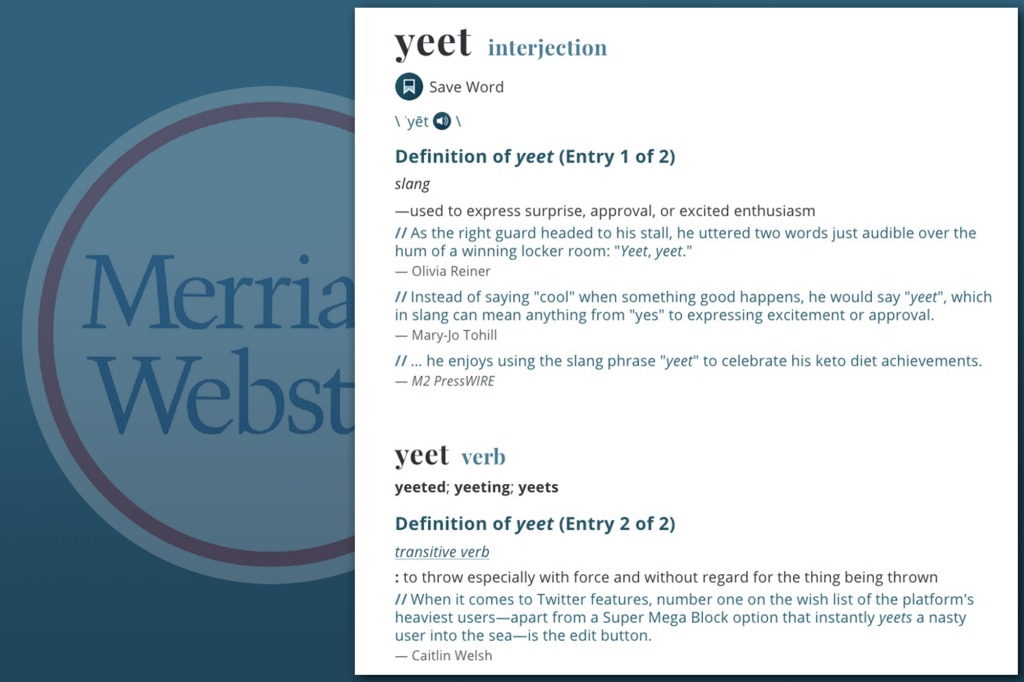Merriam-Webster adds ‘pumpkin spice’ and ‘yeet’ to dictionary
This is quite a “lewk” (n.): “a fashion look that is distinctive to the wearer and that is noticeable and memorable to others.”
Merriam-Webster said it added 370 new words and phrases to its dictionary this month, many of them terms that dominate today’s linguistic zeitgeist.
Several of the new additions were plucked from the myriad slang and informal coinages found online. Among them:
- “Yeet” (v.): To throw something with force and without regard for the thing being thrown.
- “Janky” (adj.): of very poor quality.
- “Pwn” (v.): to dominate and defeat.
“The dictionary chronicles how the language grows and changes, which means new words and definitions must continually be added,” the publisher said in an online post explaining its process for selecting new additions. “When many people use a word in the same way, over a long enough period of time, that word becomes eligible for inclusion.”
While some of the terms might indeed feel like relative newcomers to the English language, a number of the recent additions have been common parlance for years.
The newly entered verb “MacGyver,” for instance, has long referred to fixing or making something with any available tools, just like the 1985 television show’s main character. And “pumpkin spice” (n.), “a blend of cinnamon, nutmeg, ginger, cloves and allspice,” whose inclusion comes just in time for the fall season, has been ubiquitous over the years in everything from lattes to hummus, cultivating fans and critics alike.

Several online users cheered on the newest additions.
“This Vermonter who is EXTREMELY familiar with mud season is thrilled you added ‘mud season’ to the dictionary,” one weather blogger tweeted in a response to the announcement.
Another user joked in response to the addition of “laggy” (n.), meaning “having a delayed or slow response”: “It’s about… wait for it… time.”
Read the full article Here


